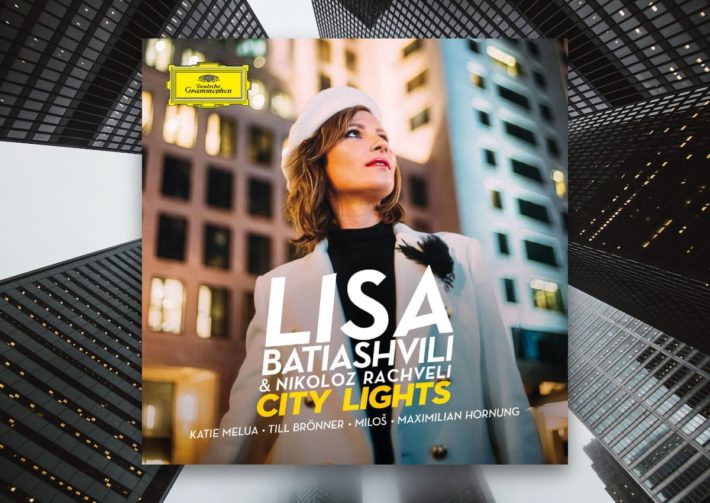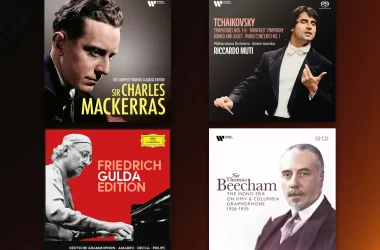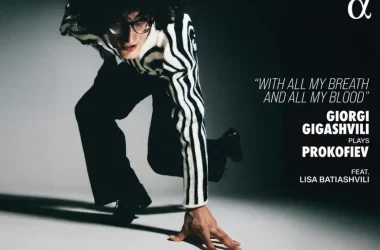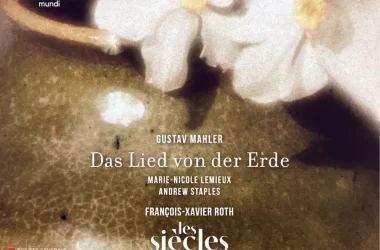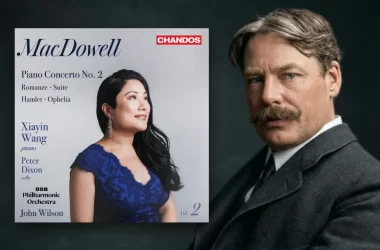“City Lights” is a series of eleven tracks (plus an introduction), each of which pays homage to a particular city important in Batiashvili’s life. The three centerpieces (Berlin, Buenos Aires, and Tbilisi) are quite difficult to describe, defying any sort of standard musical genre; the other eight tracks have more traditional roles, among them a Bach prelude, a few songs, and some violin showpieces.
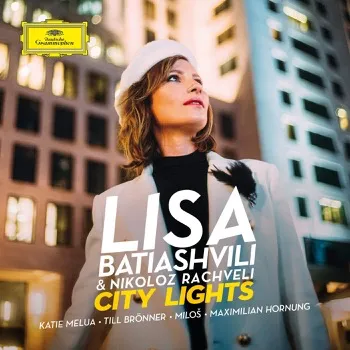
The track that makes the album is the “Berlin” track, written by composer Nikoloz Rachveli. Though it’s ostensibly an arrangement of the old song “Ich hab’ noch einen Koffer in Berlin” (“I still have a suitcase in Berlin”), it’s something much more. At first, it’s an urban soundscape, a reflection on distance and vehicles and uncertainty. Recorded materials seamlessly integrate with the orchestra and create pleasantly disturbing effects. Then suddenly we seem to be at a jazz club, with Till Brönner (a jazz trumpeter), a piano, and a subtle drum beat — but then, oh, there’s the flute with a little flourish, and the timpani, and five french horns, and finally a cadenza for Batiashvili? In the end, it turns out, we’ve been at the jazz club all along; Rachveli had simply developed it (anti-distilled it) into a full-blown musical mural, exaggerated yet detailed, real yet clearly created. The “Buenos Aires” track is similar, using a medley of Piazzolla tunes to create an evolving soundscape, and using the orchestra to emphasize or re-color the music. The pre-recorded materials (I wouldn’t quite call it sampling) appear again at the end like people mingling after an outdoor concert.
Of course, this is also a solo violin album, and Batiashvili delivers her typical brilliance. She can hold her own outside the standard classical realm, like in the “Berlin” and “Buenos Aires” soundscapes, where she is sensitive to this unusual music’s expressive possibilities. Her phrasing, while never perfectly organic, is nuanced and gratifyingly dramatic. In a more typical song arrangement, like the “Paris” track, I can almost hear her singing the lyrics with her bowing and pace. The song’s neon lights and sparks come to life with her shiny vibrato in the upper register, the Seine with a rich, low register that has just the right amount of pitch bending. (A little Ravel in the orchestration doesn’t hurt.) In the two quick showpieces, a Johann Strauss arrangement and a new composition by Stephan Koncz, Batiashvili plays with the same finesse that won her much praise in the Tchaikovsky Violin Concerto, but even goes a bit further here. In the folk-tune-inspired Koncz especially, the excitement is really palpable.
The orchestral playing and recording on this album are top-notch. The orchestra changes a few times, but you don’t notice; the Berlin and Georgian groups both deliver punchy force just as well as tender emotions. Batiashvili and the other soloists are mic’d perfectly, and the digital magic that brings them to the aural fore of a large orchestra is not disruptive.
To discuss this album as just another “fusion” album would be to do it a massive disservice. The music here manages to create, as so few similar projects do, something new and wonderful. I’ve left out so much: the lovely Dvorak arrangement, a touching song by Katie Melua, the medley of Charlie Chaplin music that introduces the album…it all works together, and it all defies genre. It’s a new kind of concept album that everyone should hear.
“City Lights”
Lisa Batiashvili – Violin
Rundfunk-Sinfonieorchester Berlin
Georgian Philharmonic Orchestra
Nikoloz Rachveli – Conductor and Pianist
Deutsche Grammophon, CD 28948385867


